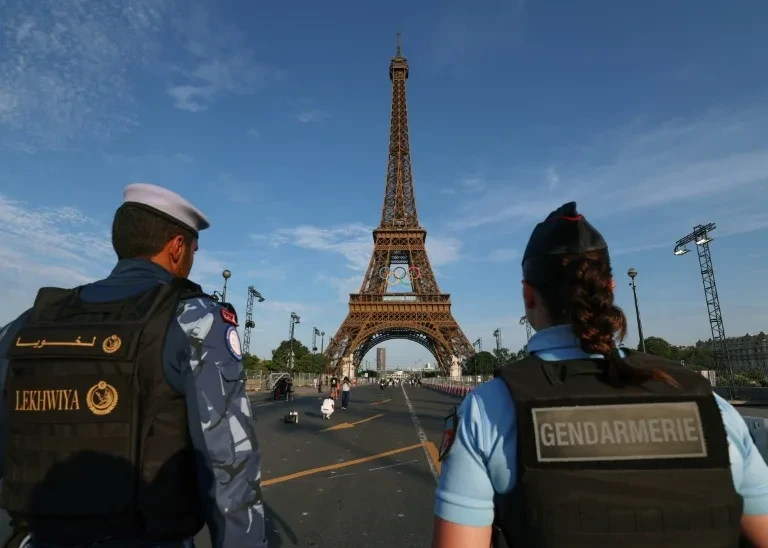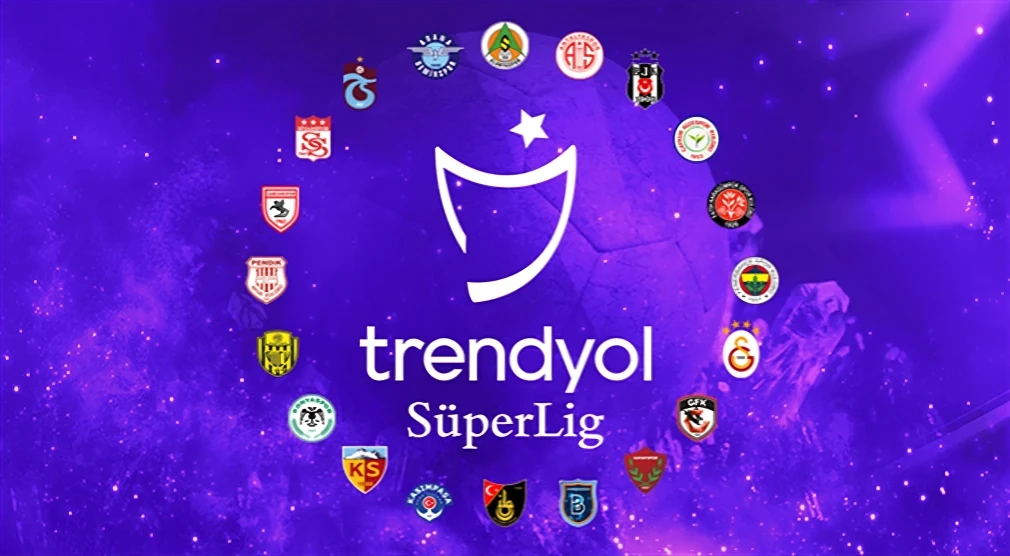Paris Olympics preparations intensify as opening ceremony nears
 A French policewoman and a Qatari policeman stand guard near the Eiffel Tower as security preparations step up for the Paris Olympics (AFP Photo)
A French policewoman and a Qatari policeman stand guard near the Eiffel Tower as security preparations step up for the Paris Olympics (AFP Photo)
Preparations for the Paris Olympics ramped up on Saturday, with security teams scouring the banks of the Seine ahead of Friday’s opening ceremony.
Meanwhile, top International Olympic Committee (IOC) officials convened in the French capital.
Security measures heightened along Seine River
Police with sniffer dogs meticulously checked the 6-kilometer (4-mile) route along the Seine for the ceremony. Approximately 6,000-7,000 athletes will sail on nearly a hundred barges and riverboats before an expected 300,000 spectators.
Colleagues from Spain, Britain and Qatar will reinforce French police. A rehearsal for the ceremony took place early Saturday, but security barriers and police shielded it from residents and media.
Disruptions affect central Paris residents
The preparations have significantly disrupted life for central Paris residents, who now need a unique QR code pass to cross the Seine.
“We’ve had fewer customers than usual for the last two weeks. There aren’t many tourists and lots of Parisians have left town. All our local clientele has gone,” said Behi Samadian, 69, a boutique owner in Saint-Germain-des-Pres.
Athlete village welcomes delegations despite IT issues
Athlete delegations have begun checking into the Olympic Village, although Friday’s global IT outage delayed some arrivals.
“Like many organizations, we suffered this global Microsoft outage,” said Games chief organizer Tony Estanguet, adding: “All of our servers were affected this morning.”
Fortunately, accreditation systems were operational again by Friday evening, and ticketing systems remained unaffected.
Organizers announced that 8.7 million tickets have been sold, surpassing the 1996 Atlanta Olympics record. Tickets are still available for some of the 45 sports featured at the Games.
Russia’s limited presence due to Ukraine invasion
Russia will be notably absent from the Paris Games, with only 15 Russians and 16 Belarusians accredited athletes, as most sports have distanced themselves following the invasion of Ukraine.
The few allowed to compete must meet strict neutrality criteria. However, Global Rights Compliance, a Hague-based human rights foundation, reported that two-thirds of the selected Russians support Moscow’s actions or have military ties.



